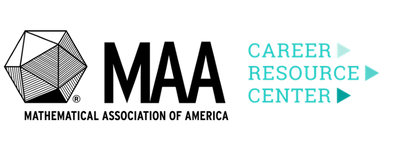At all colleges and universities, there are students who use math daily that aren’t necessarily math majors or affiliated with the math department or math club. These students use math in their classes, their daily work, and throughout their lives.
We sat down with Jenna Marcus, a rising senior studying Mechanical Engineering at the University of Maryland to learn how math is useful in her field and how she continues developing her mathematical abilities. Jenna spent the past summer interning at NASA Goddard Space Flight Center in Greenbelt, Maryland. We asked her questions about her relationship with math growing up, engineering, and future job opportunities.
How did you get involved in this field? What drew you to engineering?
I have always loved math more than any other subject. I was solving math problems for fun since I can remember. I was drawn to engineering because I just figured that's what math-oriented people do.
Would you consider yourself naturally math-oriented?
I consider myself extremely math-oriented. In all parts of my life, I use analytical and mathematical skills to make decisions and organize information. For example, I make elaborate spreadsheets with logical formatting rules to help plan events for my student organization at the University of Maryland. I have always been extremely blunt, logical, and analytical, so I think it's more a part of my identity than it is an academic interest.
How did you hone your math skills? Any courses, mentors, puzzles that really helped your ‘math brain’ develop?
Honing skills: When I was little kid bored at family dinners, my dad used to give me long division problems to solve on napkins. He started doing it on airplanes too, and then it became a fun game for me. I also liked to solve logic problems (I had a book that no one else in my family ever touched), and I also learned about logic when I began solving sudoku puzzles.
Most important skill you need to be successful in engineering?
I think that you need to be flexible in order to succeed in engineering. Our coursework as engineers is absolute, especially in mechanics/dynamics classes; we are given exactly enough parameters needed to solve the problem in a unique way (there is only one solution). In the real world, there are many more degrees of freedom and thus many more solutions. You need to be able to make decisions and narrow down options.
How do you think your STEM background will help your hiring prospects after graduation?
I chose to pursue Mechanical Engineering because I knew it would be employable. Having an engineering degree definitely helps get you a job after graduation, if that's what you're looking to do. As a person in STEM who does relatively well in school, I've never worried about finding work after college. In that sense, having the skills to get me this degree is a huge privilege.
What’s your favorite thing about math? And what do you find the most challenging?
In middle and high school, I loved attending math competitions. I competed in MathCounts and I loved the challenges it posed.
Do you have some pro tips for young women going into STEM?
If you love STEM, pursue it fearlessly. Being in a heavily male-oriented environment can be draining and can make us feel like we don't really belong. We do belong, and although [college] will be a challenging four years, your job opportunities as a minority in STEM will make up for it.

